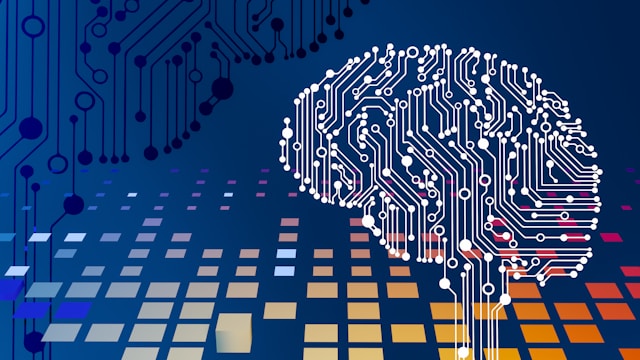New technology in Canada uses video analysis to calculate nutritional value with high precision
Artificial intelligence (AI) technology is being developed to monitor every spoonful you eat and calculate your calorie consumption. Scientists at the University of Waterloo in Canada are working on this innovative technology that analyzes video footage of individuals eating to determine the nutritional value of their diet. This advanced system aims to provide a more accurate assessment of food intake compared to current methods.
The researchers highlight the limitations of existing food portion estimation algorithms, which rely on users taking images of their meals. These methods can be inconvenient and may fail to capture food items not visible from a top-down perspective, such as ingredients submerged in a stew. The new AI technology, however, tracks each spoonful from the plate to the mouth, ensuring precise calculations.
Embed from Getty ImagesAccording to the researchers, the system can calculate the volume of food with a margin of error of just 4.4%. Although it currently does not identify the specific food items on the spoon, the AI is being trained to recognize a wide range of foods, even those it has not encountered before. This development could significantly enhance dietary monitoring and health management.
Yuhao Chen, a researcher at the University of Waterloo, explains that the AI will eventually use large language models like ChatGPT to understand and identify food items. This approach will help the system recognize mixed dishes often prepared at home, which may not have a specific name but consist of various ingredients combined from the fridge.
The technology will be compatible with forks and chopsticks in addition to spoons, broadening its applicability. This innovation is part of a broader trend of new diet technologies aimed at addressing obesity and nutrition-related health issues. Accurate dietary monitoring can help individuals make healthier food choices and improve their overall well-being.
The World Health Organization (WHO) recently launched its AI health promoter, SARAH (Smart AI Resource Assistant for Health), which provides users with dietary and health advice around the clock. SARAH, depicted as a brunette woman on a computer screen, responds to user inquiries with a pragmatic approach, suggesting that AI can be a helpful tool for monitoring food intake but should be combined with manual methods for the most accurate results.
As AI continues to evolve, its applications in health and nutrition are expanding, offering new possibilities for improving population health. The development of AI that can monitor calorie intake by analyzing each spoonful of food represents a significant advancement in this field.
Analysis:
The development of AI technology to monitor calorie intake by watching every spoonful of food has profound implications from various perspectives. The precision of this technology, combined with its ability to recognize a
wide range of foods, represents a significant leap forward in dietary monitoring and health management.
From a technological perspective, the innovation addresses the shortcomings of existing food portion estimation algorithms. Current methods often require users to take images of their meals, which can be inconvenient and may not capture all food items accurately. The new AI system’s ability to analyze video footage of each spoonful enhances accuracy and convenience. Moreover, integrating large language models like ChatGPT to identify food items further improves the system’s functionality, allowing it to handle a diverse array of dishes, including those made from miscellaneous ingredients at home.
Economically, this technology could reduce healthcare costs associated with obesity and nutrition-related diseases. By providing precise dietary monitoring, it can help individuals make informed decisions about their food intake, potentially preventing health issues before they arise. This preventive approach could decrease the burden on healthcare systems and lower the costs associated with treating chronic conditions linked to poor diet, such as diabetes and heart disease.
Sociologically, the introduction of AI in dietary monitoring could democratize access to nutrition management tools. Traditionally, personalized dietary advice has been available primarily to those who can afford professional nutritionists. AI-driven tools can offer similar benefits at a lower cost, making them accessible to a broader population. This democratization can lead to improved public health outcomes, especially in underserved communities where diet-related health issues are prevalent.
From a local perspective, the University of Waterloo’s research showcases Canada’s contribution to global health innovations. The success of this technology could position Canada as a leader in AI-driven health solutions, attracting investments and fostering further research in the field. Additionally, it could create new job opportunities in AI development, healthcare, and related sectors, boosting the local economy.
Gender and minority perspectives highlight the importance of inclusive AI development. It is crucial that the AI system accurately recognizes and analyzes the dietary habits of diverse populations. This includes considering cultural variations in diet, which can significantly differ in terms of ingredients, preparation methods, and portion sizes. Ensuring that the technology is trained on a diverse range of foods can prevent biases and ensure that it serves all user groups effectively.
From a theoretical perspective, this development aligns with theories of technological determinism, which suggest that technology shapes society and drives social change. The AI’s ability to monitor food intake and promote healthier eating habits can influence societal norms around diet and health. As people increasingly rely on AI for dietary advice, this technology could shift how individuals approach nutrition and health, leading to broader changes in lifestyle and public health strategies.
In conclusion, the AI technology developed at the University of Waterloo for monitoring calorie intake represents a significant advancement with far-reaching implications. By addressing current limitations in dietary monitoring, offering economic benefits, democratizing access to nutrition management, and promoting inclusive development, this innovation has the potential to transform how individuals and societies approach health and nutrition. The success of this technology could mark a new era in AI-driven health solutions, with positive impacts across various dimensions of society
